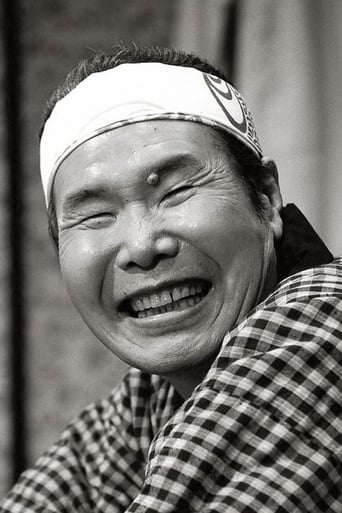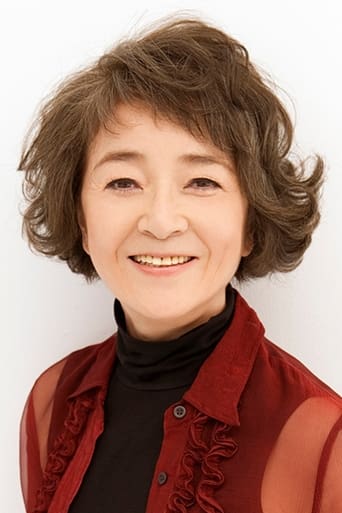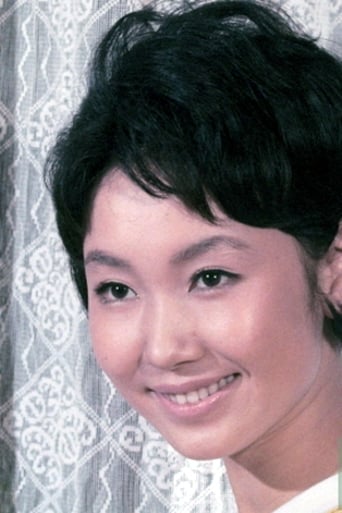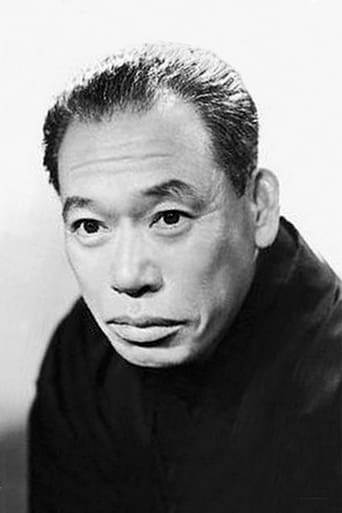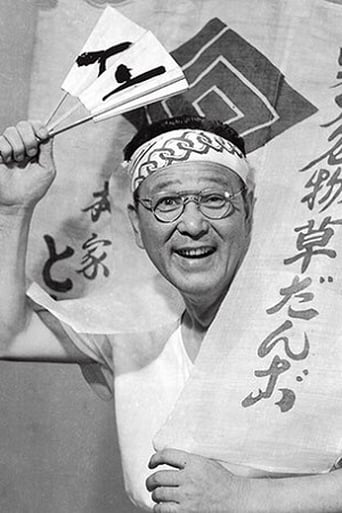Casey Duggan
It’s sentimental, ridiculously long and only occasionally funny
Aneesa Wardle
The story, direction, characters, and writing/dialogue is akin to taking a tranquilizer shot to the neck, but everything else was so well done.
Skyler
Great movie. Not sure what people expected but I found it highly entertaining.
Janis
One of the most extraordinary films you will see this year. Take that as you want.
WILLIAM FLANIGAN
Viewed on DVD. Restoration = ten (10) stars; subtitles = seven (7) stars. This is a sit-com that fans just would not let die--for more than 25 years! Initially a TV series, the "Tora-san" (Mr. Tiger) character, played by comedian Kiyoshi Atsumi, lived on in four dozen movies (the longest-running theatrical movie series to date!). In this the first of the series, Director Yoji Yamada strikes solid gold by successfully transforming a popular TV show into an even more popular movie. The script is witty (see below), the direction/editing is excellent, and the acting is just about impeccable. Fans of Japanese films will see both new and old talented faces including the fine character actor Chishu Ryu who seems to have been in just about every film made in Japan starting in the 1930's! Cinematography (wide screen, color) and scene lighting are super great, and the film score is marvelous (folks, this is a real film score not a musical mismatched patchwork often heard in contemporary Japanese movies). Exterior scenes all appear to be on location in "Old Town" Tokyo (Shibamata in Katsushika which escaped being bombed during the war), Kyoto, and Nara (the latter complete with real and inflatable deer). Subtitles are especially interesting. The viewer has the choice of subtitle color, dialog, and/or "head notes." The latter appear at the top of the screen to help insure viewers understand the word play in the script and the names of all signs (the DVD creators seem to be fearful that subtle Japanese humor will be lost in dialog translations alone--and they are right). Head notes are especially helpful in explaining mispronunciations intentionally written into the script, acting-tough gangster language, and the common inability of Japanese to read the names of others from their Chinese characters. Line readings are in every-day-conversational dialog with lots of contemporary slang. However, dialog subtitles are not always helpful or needed. Usually they are too long and flash by too fast. Sometimes they are overkill when the viewer is trying to read/comprehend two sets of translations (dialog and head notes) and the spoken word (mercifully, this is mostly confined to the first third of the film). A hilarious, more-than-minor masterpiece! WILLIAM FLANIGAN, PhD.
ebiros2
Where character of Tora-san came out is an interesting topic. The huge success of this series of course owes a lot to the great talent of actor Kiyoshi Atsumi, and director and screen writer Yoji Yamada, but something about this story must hit close to home in the minds of Japanese audience.Tora-san is as imperfect as a human can get. Yet, he has no ill intentions to anyone he meets which makes him endearing to the audience. Also the culture of down town Tokyo is very special. Although people may not be rich or refined in modern ways, they genuinely care and look after each other, while holding to their tradition.Perfection is obvious in the story and cinematography presented by director Yoji Yamada. In some ways he shot some of the most beautiful scenes of his career in this series.This movie was conceived due to two events which precedes its creation. First was another movie starring Kiyoshi Atsumi called Haikei tenno heika sama (Dear His Majesty) which he made stellar performance in, and idea of using Atsumi in a similar role was conceived. The other was the TV drama version of this story where in the end Tora dies from a poison snake bite. The ending of this series was hugely unpopular with the audience, and this movie series was born with non-tragic ending for Tora-san in each episode. Initially the series was to conclude after five episodes, but due to its popularity, it continued for 48 episodes (Yoji Yamada's plan was to shoot 50 episodes, but it ended by Atsumi's untimely death).By watching this series, you will understand the underpinning of Japanese culture better than any class in sociology can give. The brisk exchange between the characters, quick tempered brawls, who cares attitude, self pity, abandonment, sense of obligation which are all unique to the Japanese society. Although Japan now wears a facade of modernization, in its roots is the feeling like those of the people in this movie. It embodies the modern representation of what the Japanese call "Naniwa Bushi".The movie is all star cast including Takashi Shimura, Chishu Ryu, future stars of J-drama like Daisaku Akino, and Gin Maeda. Stellar performance by Cheko Baisho as Sakura, and Sachiko Mitsumoto adds to the story.The seminal episode of Tora-san movie is a delight to watch both from the story, and its beauty.
MartinHafer
Unlike many out there (especially the Japanese who apparently LOVE Tora-san), this is the one and only film from this very long series that I have seen In fact, while I am a huge fan of Japanese cinema, I haven't gotten around to seeing any of the films simply because they have not been readily available in the States. Because of my very limited exposure to the films, I may not be the best person to comment on this film--but I'll try.The movie begins with a prologue where you learn that Tora-san ran away from home when he was young and not been seen by his family since. In the interim, his parents have died and the only family member who still remains other than him is his younger sister--who is in her mid-20s and has little recollection of him. When he unexpectedly returns to town, it seems rather triumphant--with him making a good impression on everyone and begin welcomed back with open arms. Unfortunately, his welcome is relatively short-lived, as Tora-san turns out to be a boorish idiot who has a habit of making a mess of things--yet by the end of this movie, everything has STILL managed to work out and all is forgiven. What Curious Tora-san manages to screw up repeatedly in this installment is his sister's prospects of marriage. If you think about it, this is the exact same plot in the children's book "Curious George"! The only thing missing at the end is every one exclaiming 'good little monkey!".Overall, this is a pleasant little slice of life comedy. While the humor is never laugh-out-loud funny, it is cute and watchable--like an Andy Hardy film. However, some might be put off a bit by the film's overly sentimental and maudlin moments as it tries to build some sympathy for Tora-san--though, frankly, this seemed a bit out of place. For the most part, he was an idiot AND an obnoxious one---yet most seemed to forgive him all too quickly. Actually, I loved the character of his uncle--the only one who kept steadfastly insisting the man was an idiot! Also, while there was too much pathos, some was actually pretty good--such as the subplot involving the groom and his estranged parents. It didn't necessarily fit into the spirit of the rest of the movie, but this scene with his father and the groom at the wedding reception was touching and well done.The best thing I can say about this movie is that after it was over, I reserved the next three films in the long series--the only other films that are currently on Netflix or available from Amazon from the Toro-san films. Perhaps if they are successful here in the US, more will become available. I should also should point out that the DVD from Animeigo had excellent captioning and nice special features--plus the print was in top condition.
I Rule!
First "Tora-san" feature sets up format for the rest of the series, with Tora-san returning home to Shibamata after many years estranged from his family. Atsumi is hilarious, Baisho luminous, and Yamada's screenplay and direction is sensitive yet uncomprimising. As Kevin Thomas of the "LA Times" told me for an article I wrote on the series, these pictures are "sentimental, but in the good sense of the word." The real surprise here is the appearance of Takashi Shimura ("Seven Samurai," "Ikiru") as Hiroshi Suwa's estranged father. His scenes and how they relate to Tora-san's own life, is emotionally powerful stuff sprinkled with some very funny moments as well. It's really a shame that NONE of these movies are presently available on home video in the United States.
